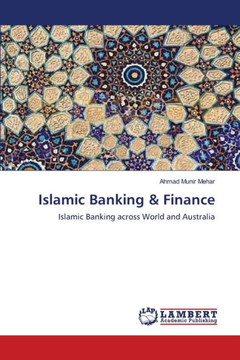
Independently Published
Essays on Islamic Banking and Finance
Product Code:
9781983399411
ISBN13:
9781983399411
Condition:
New
$12.59

Essays on Islamic Banking and Finance
$12.59
The book provides essays on Islamic banking and finance published earlier in the reputed journals. It covers quite a comprehensive list of concepts and ideas for people who are interested on the topic and would like to practice it. Based on the Quranic injunction, "Allah, The Almighty, has permitted trade and forbidden riba (2: 275)," Islamic banks do not deal in money rather deals with money using the Islamic modes of finance.The bank converts or links 'bank money' into 'commodity' and sells those to the ordering buyer at a 'mark-up profit' under the installments of re-payment in future. Islamic banking therefore, may be called 'money to commodity to money (MCM) model of banking. On the other hand, conventional banks deal in money. It may be called money upon money (MM), which is prohibited 'riba' model of banking. Islamic banks necessarily link financing to real goods, services and projects. Outright lending without the involvement of goods and services may not be possible in the system. Further, it may be called 'asset-backed' financing system. Islamic finance in form and legality is asset-backed at the micro-juristic level. It also ensures control of bank over 'money movement' which ultimately contributes to minimize the overdue risk of bank and curb over expansion of credit to both public and private sectors. This may help attain monetary expansion in harmony with the growth of output and, thus help minimize inflationary pressures. In Islamic banking, profit is the reward of risk. Islamic banks bear risk under documentary ownership and constructive possession of goods for a short or fleeting time. The 'mark-up profit' is the reward for converting 'bank-money' into 'commodity' and selling them under constructive possession to the promised buyer. It is 'mark-up profit' that is generated from the adaptation of Shariah principles of buying and selling to Islamic banking. Mark-up profit therefore, is neither 'general profit, nor 'riba'. The adaptation of Shariah is allowed in the Shariah principle of 'Istihsan'.
| Author: Mahmood Ahmed |
| Publisher: Independently published |
| Publication Date: Jul 08, 2018 |
| Number of Pages: 280 pages |
| Language: English |
| Binding: Paperback |
| ISBN-10: 1983399418 |
| ISBN-13: 9781983399411 |





